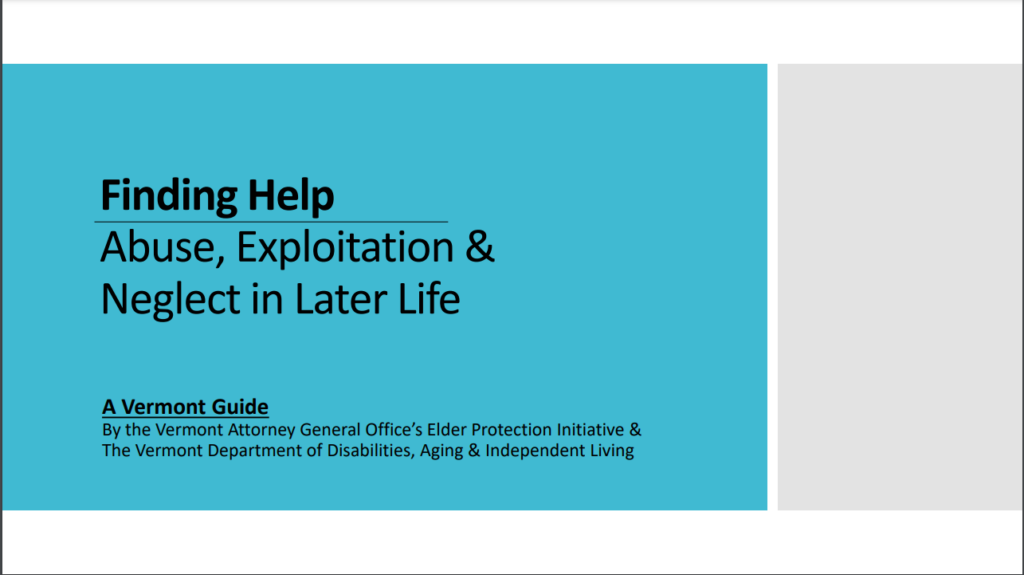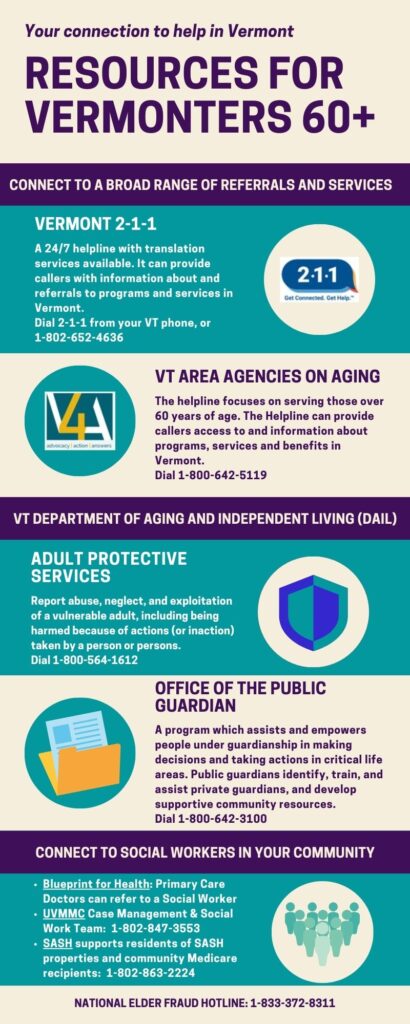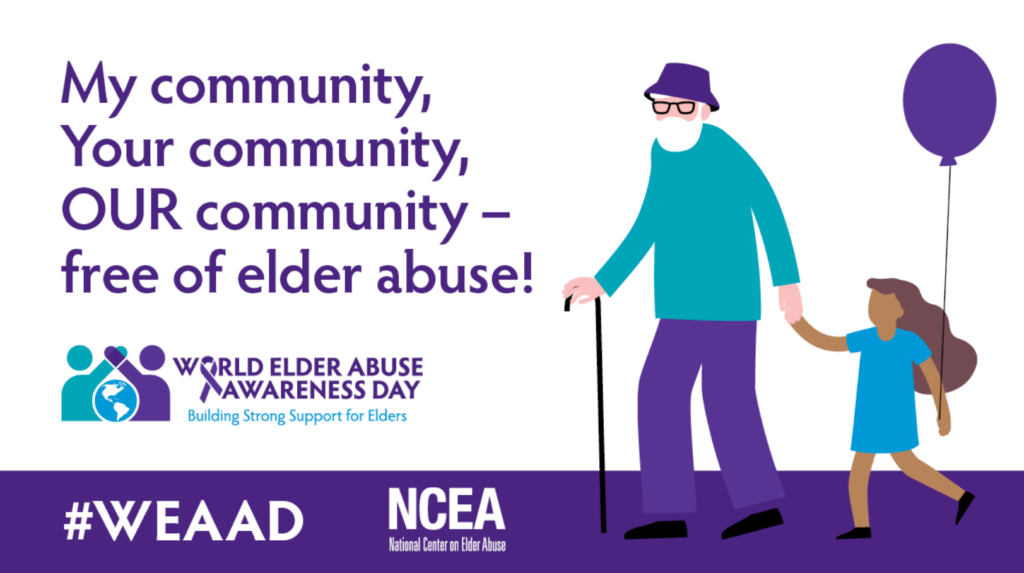By Crystal Baldwin
As we prepare for World Elder Abuse Awareness Day this Saturday, please read and share: “Finding Help,” a guide on help options for Vermonters experiencing elder abuse, exploitation and neglect.
When considering care for our loved ones, there is a lot to think about . Who should help manage their money? Should someone live with them, and who? Can we afford to hire an in-home caregiver? Should we seek out assisted living care, or think about an adult day option? Once everything is finally sorted out, we can exhale. But should we? As our parents checked in on our wellbeing as children, once our elders are set and settled, we must continue to check in on them, too, with great care and concern for their wellbeing.
On this World Elder Abuse Awareness Day, we must be vigilant and aware of the risk factors and signs of elder abuse. We must serve as supportive connections to older adults in our communities to prevent their social isolation—one of the main elder abuse risk factors (ncea.acl.gov). As someone who has cared for a vulnerable elder, I know firsthand that it can be difficult to know where to turn for help, advice, and guidance.

Last fall, the Vermont Attorney General’s Elder Protection Initiative and the Department of Disabilities, Aging and Independent Living launched the Finding Help: Abuse, Exploitation and Neglect in Later Life help guide, a resource for Vermont’s most vulnerable and those who care for them. The guide walks through how to recognize abuse and exploitation, help options outside of government, as well as how to report elder abuse or exploitation to government for response. This resource outlines free services provided by an array of organizations and state agencies, including:
- Elder abuse hotlines and helplines
- Case managers and social workers
- Domestic & sexual violence organizations
- Legal services; and
- Other community-based organizations and professionals
You can help prevent elder abuse and exploitation. I encourage you to share and save a copy of this guide and keep it among your most referenced resources. Also, consider printing out the following abbreviated resource guide and share it with the elders in your life. It includes some of the primary referral resource hotlines and can be kept handy close to the phone for easy reference.

Resources:
NCEA: https://ncea.acl.gov/
World Elder Abuse Awareness Day: https://worldelderabuseawareness.com/about-weaad/

